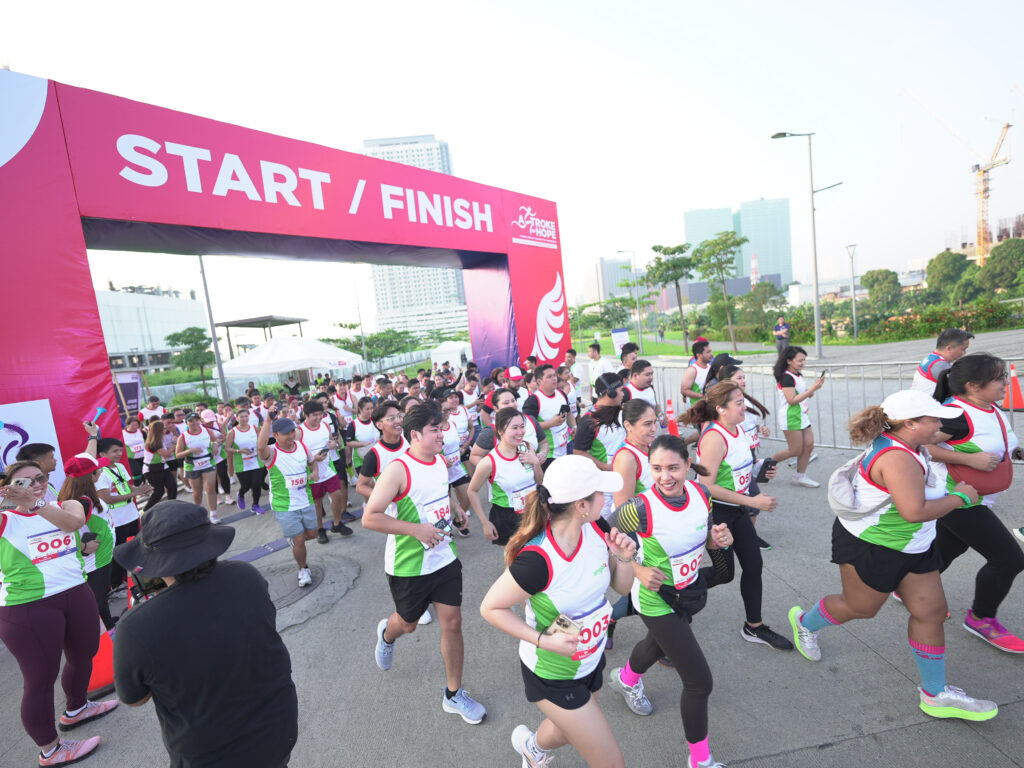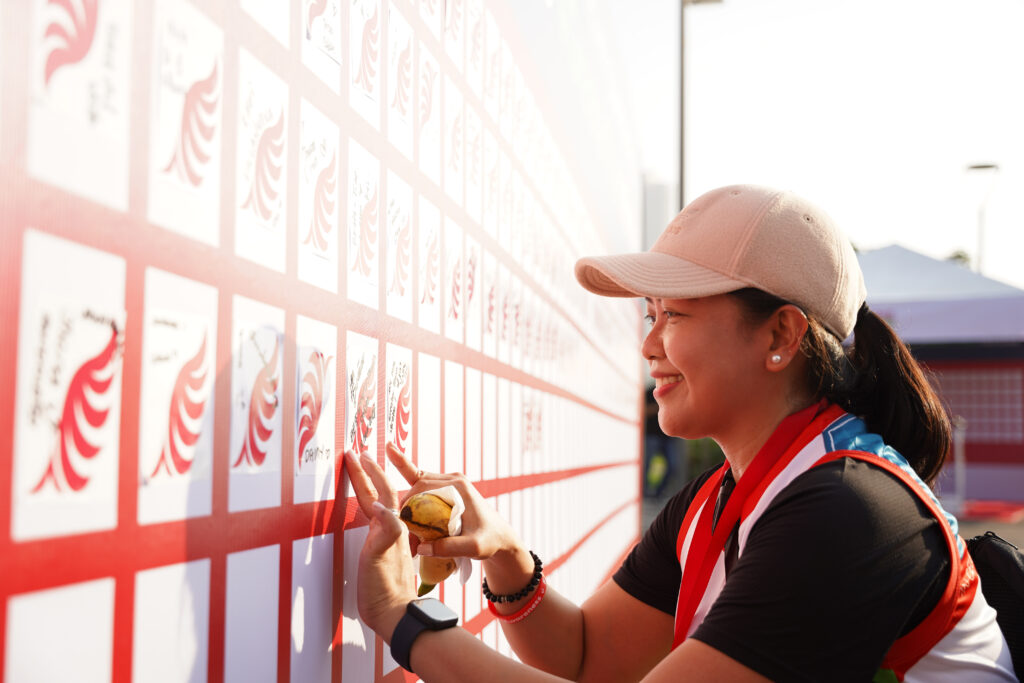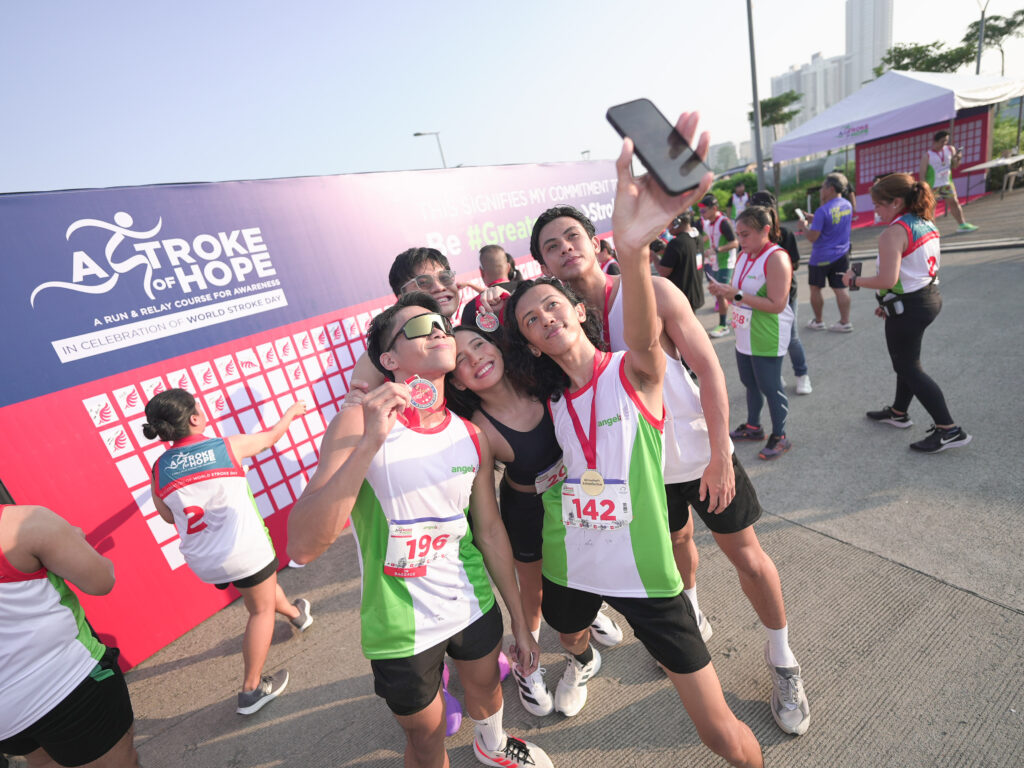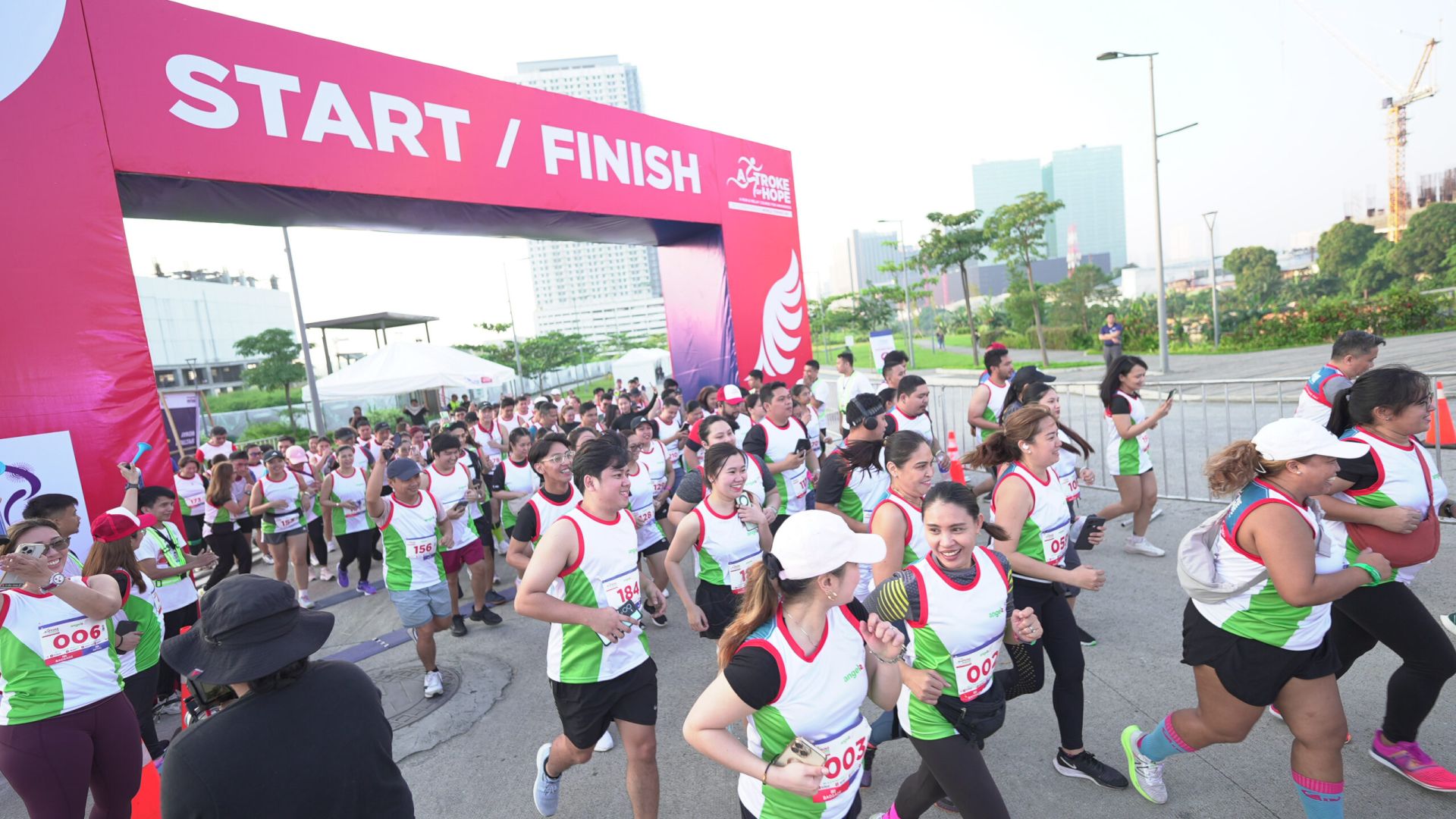Stroke remains the leading cause of disability and death in the Philippines, affecting over 500,000 Filipinos annually and resulting in approximately 87,402 deaths each year. The profound impact of stroke on individuals, families and communities underscores the urgent need for increased awareness and proactive measures to prevent this life-threatening disease.
To champion stroke awareness, Angels Initiative, a global healthcare advocacy program of Boehringer Ingelheim, supported by the Stroke Society of the Philippines (SSP), launches ‘A Stroke of Hope: A Run and Relay Event for Stroke Awareness’ in celebration of World Stroke Day. The event highlights Boehringer Ingelheim’s Sustainable for Development for Generations (SD4G) commitment to building healthy, inclusive, and sustainable communities through social impact.

Krissy Avestro, Stroke Care Program Manager and Angels Initiative Lead, stated, “The ‘A Stroke of Hope’ event aims to raise awareness about stroke prevention and empower individuals to recognize its signs using the Balance, Eyes, Face, Arm, Speech, and Time (BEFAST) acronym. By educating the community on these critical aspects, Angels Initiative hopes to promote a better understanding of available treatment options and ultimately save lives.”

Stroke symptoms can easily be identified using the BEFAST acronym, with each letter representing a key warning sign: Balance loss, Eyesight changes, Face drooping, Arm weakness, Speech difficulty, and the critical importance of Time to call emergency services. Promptly recognizing these signs allows for immediate treatment, significantly improving outcomes and minimizing the risk of long-term disability.
‘A Stroke for Hope’ featured a dynamic 3KM run with four obstacle courses, along with treadmills for non-runners to walk or run. The event transformed the traditional race format into an immersive experience centered on education, prevention, and community action.
Stations, like the stroke tunnel, emphasized that with proper care and prevention, one can help avoid or recover from stroke. Another was the ball pit station, where participants searched for items featuring a doctor and ambulance, reinforcing the importance of immediate treatment.

Other stations featured relays that promote a healthy lifestyle, essential in lowering stroke risks, and the BEFAST puzzle, reminding participants of the stroke warning signs. Engaging finisher activities, such as finisher medals and a commitment exercise, symbolized the participants’ dedication to promoting stroke awareness and fostering hope and solidarity.
Dr. Ma. Cristina Macrohon-Valdez, President of Stroke Society of the Philippines (SSP) highlighted, “Regular exercise is crucial for maintaining cardiovascular health, improving blood circulation, and managing weight, which lowers stroke risk and lessens the severity of a potential stroke while aiding in recovery. By promoting an active lifestyle, we can significantly reduce stroke risk and support better recovery outcomes for all Filipinos.”
Angels Initiative continues to lead efforts in raising awareness, enhancing stroke care, and improving the quality of treatment at acute stroke-ready centers. By engaging communities in events like ‘A Stroke of Hope,’ the initiative aims to foster a culture of health and awareness that empowers individuals to take proactive steps in stroke prevention.




